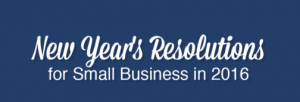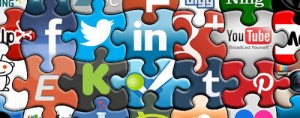By Kim Rittberg
I’m not a futurist or technologist but my early forays into ChatGPT have shown me it’s useful for ideation in content creation and I’ve begun to incorporate it into my video courses. I’ve even used it for some tedious tasks (but with a heavy hand in the editing).
But no matter how you feel about it, AI is here. So, which types of jobs are most at risk? What’s the best way to stay relevant?
Which jobs are most at risk?
According to a Goldman Sachs study, 300 million full-time jobs around the world will be impacted by automation. They say “most jobs and industries are only partially exposed to automation and are thus more likely to be complemented rather than substituted by AI.” So, which are the most endangered?
Joe Apfelbaum, who teaches entrepreneurs how to use AI through his course, says most at risk are jobs that use a process that can be done faster and cheaper with AI like assembling products or filing tax returns.
Paul Canetti, a professor at Columbia Business School and founder/CEO of Skej, a new AI scheduling assistant company says, “if you’re a plumber, or own/manage a plumbing business, you’re good. AI doesn’t have arms and hands.” Canetti says that decision-makers and people managers are also safe because AI can’t motivate or relate to humans or build political capital—“not any time soon anyway.”
Shannan Monson, a founder and educator, says it’s not all doom and gloom. “We didn’t stop washing our dishes just because the dishwasher was invented. We simply get to do it faster, easier, and with less effort.”
The transition is both slower and faster than we think
As AI evolves, its adoption might not be as fast as we think. But those who absorb and master it quickly are at more of an advantage.
Canetti says there is going to be “a long period of transition, where you can perform incredibly well at your job by taking advantage of these new tools before the average person does. You’re using a calculator and everyone else is still working by hand—who do you think is going to get promoted?”
Envision the alternate version of yourself, who has mastered AI, do they seem more or less effective at the job? Canetti says “long before AI takes your job, someone using AI is going to take it!” Monson says: “Try everything. And don’t just learn it, teach the rest of the team how to use it, too.”
I wasn’t necessarily the first person to hop on ChatGPT but since exploring it, I’ve become excited at using it for the more banal and laborious processes related to my work. I began my career in writing for television news and then shifted into digital marketing and video strategy. I am a creative at heart, but like everyone else, my day-to-day includes some repetitive and tedious work that doesn’t utilize my most valuable skills. Instead of writing a simple blog post explaining what “media training is” or summarizing a podcast episode, I can focus on deeper level strategy, and relating to other humans (aka clients).
AI doesn’t have ‘passion’
Experts agree that distinctly human skills will remain the most valuable. But Canetti says it’s hard to predict the impact of AI on things like business strategy because GPT-4 is even good at that. However, the AI can’t get the team to execute, “so humans are uniquely qualified there. Human-to-human work is going to be hardest to replace.”
“Focus on developing executive functioning and leadership skills,” Monson says, “skills that will always have value regardless of the technology available. Focus on building your skills as a team player and a team leader.”
Apfelbaum argues that it’s not just about reskilling, but rather people should “really understand who they are, what their strengths are and what gets them excited. AI does not have passion, real human creativity, and intuitive thinking. People need to get over their fears and get complete with who they are so they can show up with all their creativity.”
Kim Rittberg is a six-time award-winning marketing strategist and on-camera media trainer who helps entrepreneurs and business owners how to become thought leaders through video and podcasts. She hosts workshops and seminars focused on improving messaging, video marketing strategy, and public speaking skills.
(5)
Report Post







